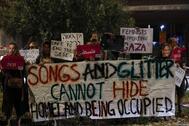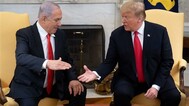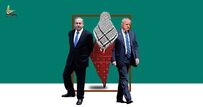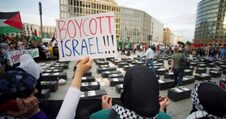22 may 2019

by Yvonne Ridley
It was the result that nobody predicted: the winner of Eurovision 2019 is… Palestine!
Despite the organisers describing the Eurovision Song Contest as a non-political event, the issue of Palestine took back, front and centre stage in Tel Aviv over the weekend, which may make Israel come to regret its weaponisation of culture and the whitewashing of its discrimination against the Palestinian people.
Reaching a global audience that the pro-Palestine lobby could only dream of, Eurovision gave the Palestinian cause a platform and exposure to an audience of millions not normally confronted by Middle East politics.
When you get the headline act Madonna including the Palestinian flag on the back of one of her dancers, as well as Icelandic band Hatari displaying Palestinian banners on live television, it’s hard to ignore the policies and practices of Israel, which these days are likened — with good reason — to the abhorrent apartheid system of racial segregation which once dominated life in South Africa.
Iceland’s Eurovision act could now face some sort of disciplinary action for displaying Palestinian flags during their live showpiece, according to officials who said that the issue will be discussed by the contest’s executive board.
To make matters worse for the organisers, Hatari also waved Palestinian flags on screen while their public vote was being announced.
Although I didn’t watch the show myself, as I was backing the boycott campaign — normally it’s a firm favourite in the Ridley household — I’m told that attempts were made backstage to remove any Palestinian flags; those which managed to get past security did so without official approval.
The Israelis, of course, were far from happy about this.
Last year, a bill was introduced in the country’s parliament which more or less proposed a total ban on Palestinian flags being flown in public in the Zionist state; “offenders” could face a prison sentence of up to 10 years if found guilty of such an “offence”.
The welcome publicity at Eurovision turned the spotlight on what is happening to Palestinians beyond the glitz and glamour associated with the contest. If officials do take action against the flag-wavers, then they will have to explain to the world why it is frowned upon to wave the Palestinian flag in Israel.
It was the result that nobody predicted: the winner of Eurovision 2019 is… Palestine!
Despite the organisers describing the Eurovision Song Contest as a non-political event, the issue of Palestine took back, front and centre stage in Tel Aviv over the weekend, which may make Israel come to regret its weaponisation of culture and the whitewashing of its discrimination against the Palestinian people.
Reaching a global audience that the pro-Palestine lobby could only dream of, Eurovision gave the Palestinian cause a platform and exposure to an audience of millions not normally confronted by Middle East politics.
When you get the headline act Madonna including the Palestinian flag on the back of one of her dancers, as well as Icelandic band Hatari displaying Palestinian banners on live television, it’s hard to ignore the policies and practices of Israel, which these days are likened — with good reason — to the abhorrent apartheid system of racial segregation which once dominated life in South Africa.
Iceland’s Eurovision act could now face some sort of disciplinary action for displaying Palestinian flags during their live showpiece, according to officials who said that the issue will be discussed by the contest’s executive board.
To make matters worse for the organisers, Hatari also waved Palestinian flags on screen while their public vote was being announced.
Although I didn’t watch the show myself, as I was backing the boycott campaign — normally it’s a firm favourite in the Ridley household — I’m told that attempts were made backstage to remove any Palestinian flags; those which managed to get past security did so without official approval.
The Israelis, of course, were far from happy about this.
Last year, a bill was introduced in the country’s parliament which more or less proposed a total ban on Palestinian flags being flown in public in the Zionist state; “offenders” could face a prison sentence of up to 10 years if found guilty of such an “offence”.
The welcome publicity at Eurovision turned the spotlight on what is happening to Palestinians beyond the glitz and glamour associated with the contest. If officials do take action against the flag-wavers, then they will have to explain to the world why it is frowned upon to wave the Palestinian flag in Israel.

Moreover, if the Eurovision hierarchy is taking action against little-known Hatari, will they do the same to megastar Madonna?
“In the live broadcast of the Eurovision Song Contest Grand Final, two of Madonna’s dancers briefly displayed the Israeli and Palestinian flags on the back of their outfits,” said officials. “This element of the performance was not part of the rehearsals which had been cleared with the [European Broadcasting Union] and the host broadcaster, KAN. The Eurovision Song Contest is a non-political event and Madonna had been made aware of this.”
Away from all the current brouhaha, maybe it’s time for Palestine to take part in Eurovision; and why not?
It’s still a bit of a mystery why Israel and Australia are on the contestant list for a European competition (and, while we’re on this subject, why Israel takes part in European football tournaments); I would have thought that Palestine has just as strong a claim as Israel if geography is anything to do with it.
The moment that Israel was named as the venue for Eurovision 2019, pro-Palestine supporters seized upon the opportunity to expose the brutality of its military occupation. Calls to boycott the contest were given a boost by Mercury Prize-winning rock band Wolf Alice.
In a recent MEMO article, the band gave its support to the boycott by evoking images of Israel’s domination over Palestinians saying that it was “weaponising culture” and that the Zionist state was a “serial human rights abuser” which “use[s] culture to art wash” and “whitewash over [its] human rights abuses”.
“In the live broadcast of the Eurovision Song Contest Grand Final, two of Madonna’s dancers briefly displayed the Israeli and Palestinian flags on the back of their outfits,” said officials. “This element of the performance was not part of the rehearsals which had been cleared with the [European Broadcasting Union] and the host broadcaster, KAN. The Eurovision Song Contest is a non-political event and Madonna had been made aware of this.”
Away from all the current brouhaha, maybe it’s time for Palestine to take part in Eurovision; and why not?
It’s still a bit of a mystery why Israel and Australia are on the contestant list for a European competition (and, while we’re on this subject, why Israel takes part in European football tournaments); I would have thought that Palestine has just as strong a claim as Israel if geography is anything to do with it.
The moment that Israel was named as the venue for Eurovision 2019, pro-Palestine supporters seized upon the opportunity to expose the brutality of its military occupation. Calls to boycott the contest were given a boost by Mercury Prize-winning rock band Wolf Alice.
In a recent MEMO article, the band gave its support to the boycott by evoking images of Israel’s domination over Palestinians saying that it was “weaponising culture” and that the Zionist state was a “serial human rights abuser” which “use[s] culture to art wash” and “whitewash over [its] human rights abuses”.
|
|
The British band Slovo, which boycotts Israel as a concert venue citing apartheid as the reason, released a song recently called: “I don’t sing for apartheid”.
Other musicians around the world have promoted similar work to challenge Eurovision’s decision to allow Israel to host the show. While the peaceful Boycott, Divestment and Sanctions (BDS) movement campaigned at every levels to persuade broadcasters, artists, bands and the global audience to boycott Eurovision 2019, there were also similar initiatives taking place within the Zionist State itself. The Israeli activists calling themselves “Breaking the Silence” urged Eurovision fans in the Israeli capital Tel Aviv to experience “the full picture” of Israel’s occupation by taking a tour to the occupied West Bank city of Hebron. Visitors there can experience the apartheid system of domination imposed there on 300,000 indigenous Palestinians living in the city.
Breaking the Silence, which was founded by former members of the Israeli army, also erected a giant billboard on the major route between Israel’s Ben Gurion Airport and Tel Aviv to highlight the brutal occupation of the Palestinian territories. Those heading to Saturday night’s final would also have encountered protestors on the way to the venue handing out leaflets explaining how Palestinian refugees in Gaza, the occupied West Bank and beyond were made stateless by Israel’s ethnic cleansing in 1948. The leaflets would have told about the violence used to displace, expel and disappear the Palestinians before and after Israel’s creation on Palestinian land in 1948. Eurovision featured musicians from more than 40 nations and usually attracts a global audience of 190 million people. According to early reports, though, only half of the tickets for the 2019 live show were sold; losses of around two million shekels — $559 million — are predicted. The Eurovision Song Contest 2019 was clearly affected by the international BDS campaign and yet, paradoxically, delivered a major propaganda victory for the Palestinian people. That is why, in my opinion, they are the real winners of Saturday night’s event. Now sit back and try to imagine the impact they could have if there is a Palestinian band or singer taking part in Eurovision 2020. |
~MEMO/Days of Palestine
(British journalist and author Yvonne Ridley provides political analysis on affairs related to the Middle East, Asia and the Global War on Terror.)
(British journalist and author Yvonne Ridley provides political analysis on affairs related to the Middle East, Asia and the Global War on Terror.)
21 may 2019

The Islamic Action Front has called on the Jordanian government not to participate in a US-led conference in Bahrain next month in support of US President Donald Trump’s controversial proposal for “peace” between the Israeli regime and Palestinians, dubbed “the deal of the century.”
The political party, which is the political wing of the Muslim Brotherhood in Jordan, said in a statement on Tuesday that the forthcoming conference falls within the framework of the so-called deal of the century that is aimed at liquidating the Palestinian cause.
“Jordan’s official and popular position is to refuse any deal, which would undermine the rights of the Palestinian nation and interests of the Jordanian state,” the statement pointed out.
The US will host the economic conference on June 25 and 26 to purportedly encourage investment in the West Bank and the Gaza Strip.
Mounir Rashid, a member of the Islamic Action Front, said the meeting represents a dangerous attempt to suffocate the Palestinian cause, and is in line with Trump administration’s transfer of the American embassy from Tel Aviv to Jerusalem al-Quds, bids to abolish the right of return, and recognition of the annexation of the occupied Golan Heights as well settlements built on private Palestinian lands.
“American administrations have time and time again violated international laws and obligations on the Palestinian issue to demonstrate their bias towards the Zionist regime (of Israel). The Bahrain conference is the last chapter before Arabs’ formal normalization of ties with Israel… The will of a nation is an impenetrable barrier to such plots.
The Palestinian nation will not give up their land, sanctities, right of return and ultimate freedom,” Rashid highlighted.
Meanwhile, Palestinian Freedom Movement has described the American-led conference in Bahrain as a serious attack on the Palestinian issue, calling on the Manama regime to reverse the “dangerous decision.”
It also urged the Bahraini nation as well as the country’s institutions and executive bodies to act effectively and pressure officials to overturn the decision.
On Monday, the Palestinian resistance movement, Hamas, called on Arab countries not to accept invitations to participate in the upcoming Bahrain workshop scheduled for late June, saying, “This is the beginning of the deal of the century.”
“We call on Arab countries not to respond to invitations to participate in the workshop in Bahrain, and stand by the Palestinian nation by all means and tools..,” the movement said in a statement.
Trump’s “peace plan” has already been dismissed by Palestinian authorities ahead of its unveiling at the end of the holy fasting month of Ramadan and the formation of the new Israeli cabinet, most likely in June.
Speaking in the occupied West Bank city of Ramallah on April 16, Palestinian Prime Minister Mohammad Shtayyeh lashed out at the initiative, asserting that it was “born dead.”
Shtayyeh noted that negotiations with the US were useless in the wake of the country’s relocation of its embassy from Tel Aviv to Jerusalem al-Quds, which Palestinians consider the capital city of their future state.
The political party, which is the political wing of the Muslim Brotherhood in Jordan, said in a statement on Tuesday that the forthcoming conference falls within the framework of the so-called deal of the century that is aimed at liquidating the Palestinian cause.
“Jordan’s official and popular position is to refuse any deal, which would undermine the rights of the Palestinian nation and interests of the Jordanian state,” the statement pointed out.
The US will host the economic conference on June 25 and 26 to purportedly encourage investment in the West Bank and the Gaza Strip.
Mounir Rashid, a member of the Islamic Action Front, said the meeting represents a dangerous attempt to suffocate the Palestinian cause, and is in line with Trump administration’s transfer of the American embassy from Tel Aviv to Jerusalem al-Quds, bids to abolish the right of return, and recognition of the annexation of the occupied Golan Heights as well settlements built on private Palestinian lands.
“American administrations have time and time again violated international laws and obligations on the Palestinian issue to demonstrate their bias towards the Zionist regime (of Israel). The Bahrain conference is the last chapter before Arabs’ formal normalization of ties with Israel… The will of a nation is an impenetrable barrier to such plots.
The Palestinian nation will not give up their land, sanctities, right of return and ultimate freedom,” Rashid highlighted.
Meanwhile, Palestinian Freedom Movement has described the American-led conference in Bahrain as a serious attack on the Palestinian issue, calling on the Manama regime to reverse the “dangerous decision.”
It also urged the Bahraini nation as well as the country’s institutions and executive bodies to act effectively and pressure officials to overturn the decision.
On Monday, the Palestinian resistance movement, Hamas, called on Arab countries not to accept invitations to participate in the upcoming Bahrain workshop scheduled for late June, saying, “This is the beginning of the deal of the century.”
“We call on Arab countries not to respond to invitations to participate in the workshop in Bahrain, and stand by the Palestinian nation by all means and tools..,” the movement said in a statement.
Trump’s “peace plan” has already been dismissed by Palestinian authorities ahead of its unveiling at the end of the holy fasting month of Ramadan and the formation of the new Israeli cabinet, most likely in June.
Speaking in the occupied West Bank city of Ramallah on April 16, Palestinian Prime Minister Mohammad Shtayyeh lashed out at the initiative, asserting that it was “born dead.”
Shtayyeh noted that negotiations with the US were useless in the wake of the country’s relocation of its embassy from Tel Aviv to Jerusalem al-Quds, which Palestinians consider the capital city of their future state.

The Hamas Movement has called on Arab countries not to accept invitations to attend the economic workshop slated for next June in Bahrain, warning the events is intended to launch US president Donald Trump’s deal of the century.
In a press release on Monday, Hamas called on Arab countries to boycott the intended conference in Bahrain and provide the Palestinian people with every support to confront and frustrate the US deal of the century.
“We are following with great concern the American announcement about holding an economic workshop next June in the Bahraini capital of Manama,” Hamas said, describing it as the first American conference to be held as part of the deal of the century.
The Movement warned of any Arab involvement in adopting and executing the deal of the century, saying any participation in the US workshop would be considered a violation of the Arab and Palestinian position and departure from the Arab and Islamic constants.
It expressed its rejection of any political or economic steps paving the way to implementing the deal of the century.
In a press release on Monday, Hamas called on Arab countries to boycott the intended conference in Bahrain and provide the Palestinian people with every support to confront and frustrate the US deal of the century.
“We are following with great concern the American announcement about holding an economic workshop next June in the Bahraini capital of Manama,” Hamas said, describing it as the first American conference to be held as part of the deal of the century.
The Movement warned of any Arab involvement in adopting and executing the deal of the century, saying any participation in the US workshop would be considered a violation of the Arab and Palestinian position and departure from the Arab and Islamic constants.
It expressed its rejection of any political or economic steps paving the way to implementing the deal of the century.
19 may 2019
In addition, Einar Stef, one of the band's members, posted a video on his personal Instagram profile, showing staff confiscating one of the banners and demanding the rest of them to be handed over.Despite Hatari's pro-Palestinian protest during the song contest, the Boycott, Divestment and Sanctions movement (BDS), which called for a "total boycott," dismissed it and said in a statement, “Artists who insist on crossing the Palestinian boycott picket line, playing in Tel Aviv in defiance of our calls, cannot offset the harm they do to our human rights struggle by ‘balancing’ their complicit act with some project with Palestinians.
Palestinian civil society overwhelmingly rejects this fig-leafing. The most meaningful expression of solidarity is to cancel performances in apartheid Israel.”
Palestinian civil society overwhelmingly rejects this fig-leafing. The most meaningful expression of solidarity is to cancel performances in apartheid Israel.”
|
|
Although Madonna performing at the Eurovision stirred up controversy, she surprised many when two of her backup dancers, briefly appeared on stage wearing the Israeli and Palestinian flags on the back of their costumes and walked off stage arm-in-arm during her new song "Future."
Prior to taking the stage, the 60-year-old said, "Let's never underestimate the power of music to bring people together." Following the pop star's performance, the European Broadcasting Union, which co-produced the contest alongside Israel’s national broadcaster, issued a statement saying, “This element of the performance was not cleared with the EBU and the Host Broadcaster, KAN," adding "The Eurovision Song Contest is a non-political event and Madonna had been made aware of this." |

Ultimately, 25-year-old Dutch singer-songwriter, Duncan Laurence, beat 25 other Eurovision contestants, by winning 492 points with his song “Arcade.” His victory has given the Netherlands the right to host the 2020 finals after 44 years. Italy came second, with 465 points, and Russia third, with 369 points.
In April, some 171 Swedish artists and celebrities have signed an open letter urging to boycott the 2019 Eurovision Song Contest and stressed that "as long as Israel, with its apartheid policy, denies the Palestinians their basic human rights, we must renounce all participation in Israeli cultural exchanges.”
Meanwhile, dozens of LGBT groups signed a statement, in which they accused Israel of using the song contest as distracting “attention from its war crimes against Palestinians” and “forwarding its pinkwashing agenda, the cynical use of gay rights to distract from and normalize Israel’s occupation, settler colonialism and apartheid.”
In September 2018, over 140 artists from around the world, including six Israeli artists, signed a letter calling for the boycott of the 2019 Eurovision Song Contest and demanding the song contest should be boycotted if it is "hosted by Israel while it continues its grave, decades-old violations of Palestinian human rights."
Performing in Israel still remains highly politicized, with many criticizing that Israel's military action towards the Palestinians is more than enough to justify a cultural boycott.
Hatari Under Fire for Displaying Palestinian Flag at Eurovision
Hatari, the Icelandic Act, could face punishment after they raised the Palestinian flag, while their public vote was being announced at the end of the live final of the Eurovision contest, held in Tel Aviv– amid international calls for boycott.
In a statement, Eurovision said the “consequences of this action” will be discussed by the contest’s executive board.
It said: “In the live broadcast of the Eurovision Song Contest Grand Final, Hatari, the Icelandic act, briefly displayed small Palestinian banners whilst sat in the Green Room.
“The Eurovision Song Contest is a non-political event and this directly contradicts the Contest rules. The banners were quickly removed and the consequences of this action will be discussed by the Reference Group (the Contest’s executive board) after the Contest.”
Eurovision is supposed to be “non-political” however the build-up has been marred by controversy and calls for a boycott by pro-Palestinian activists.
During Madonna’s highly anticipated performance, her backing dancers displayed Israeli and Palestinian flags. According to the PNN, organizers said it had not been part of the approved act.
In April, some 171 Swedish artists and celebrities have signed an open letter urging to boycott the 2019 Eurovision Song Contest and stressed that "as long as Israel, with its apartheid policy, denies the Palestinians their basic human rights, we must renounce all participation in Israeli cultural exchanges.”
Meanwhile, dozens of LGBT groups signed a statement, in which they accused Israel of using the song contest as distracting “attention from its war crimes against Palestinians” and “forwarding its pinkwashing agenda, the cynical use of gay rights to distract from and normalize Israel’s occupation, settler colonialism and apartheid.”
In September 2018, over 140 artists from around the world, including six Israeli artists, signed a letter calling for the boycott of the 2019 Eurovision Song Contest and demanding the song contest should be boycotted if it is "hosted by Israel while it continues its grave, decades-old violations of Palestinian human rights."
Performing in Israel still remains highly politicized, with many criticizing that Israel's military action towards the Palestinians is more than enough to justify a cultural boycott.
Hatari Under Fire for Displaying Palestinian Flag at Eurovision
Hatari, the Icelandic Act, could face punishment after they raised the Palestinian flag, while their public vote was being announced at the end of the live final of the Eurovision contest, held in Tel Aviv– amid international calls for boycott.
In a statement, Eurovision said the “consequences of this action” will be discussed by the contest’s executive board.
It said: “In the live broadcast of the Eurovision Song Contest Grand Final, Hatari, the Icelandic act, briefly displayed small Palestinian banners whilst sat in the Green Room.
“The Eurovision Song Contest is a non-political event and this directly contradicts the Contest rules. The banners were quickly removed and the consequences of this action will be discussed by the Reference Group (the Contest’s executive board) after the Contest.”
Eurovision is supposed to be “non-political” however the build-up has been marred by controversy and calls for a boycott by pro-Palestinian activists.
During Madonna’s highly anticipated performance, her backing dancers displayed Israeli and Palestinian flags. According to the PNN, organizers said it had not been part of the approved act.

Two right-wing parties in Germany succeeded in getting the German Parliament to pass a bill on Friday condemning the Boycott-Divestment-Sanctions (BDS) movement as ‘anti-Semitic’ in a close vote following a rowdy debate – although the bill is largely symbolic and has no enforcement mechanism.
According to the Times of Israel, “Well before Germany passed landmark legislation condemning the Boycott, Divestment and Sanctions (BDS) movement on Friday, it was clear that the motion, sponsored by two of the country’s largest parties, would pass. All the same, the session was significantly livelier than the one on European economics preceding it. Cheers and jeers (mostly the latter) rang out as MPs argued for and against three competing versions of anti-BDS legislation sponsored by different groups.”
The bill that passed Friday stated that “the pattern of argument and methods of the BDS movement are anti-Semitic”, and added that the German government would not fund or support organizations involved in the boycott of Israeli products and companies.
One of the parties that pushed through the legislation, the AfD party, has been called out for anti-Muslim and xenophobic statements and actions.
Members of the party have been associated with neo-Nazi organizations and events.
The other, the Die Linke party, is known to be more centrist-left.
In an interview last year with the ‘Humboldt Three’, two Israeli-German and one Gazan-German activists who were arrested for disrupting a talk by an Israeli official, the activists pointed out, “In Germany, just as in apartheid Israel, the very organizations which claim to promote peace and justice are ironically those leading the assault on human rights whenever it relates to Israel.
At the forefront of the campaign to criminalize BDS activists and those who oppose Zionist crimes is the Rosa Luxemburg Stiftung — the PR wing of Die Linke party — which, under the guise of peace and justice, targets human rights defenders as well as abuses the memory of Luxemburg herself.
“In a statement from June 2011, Die Linke refers to BDS as well as to proponents of full equality under a single state as anti-Semites. This laid the groundwork for the criminalization attempt of BDS we are experiencing today, to the dismay of a group of dissident Israelis. Die Linke also escalated its assault on Palestinian rights when it issued a joint statement with several other parties in May 2018, again equating BDS with anti-Semitism.”
The Times of Israel noted that many members of the Jewish and Israeli community in Germany and Israel actually opposed the bill. “An online petition signed by more than 60 Israeli and Jewish academics argued that the “amalgamation” of calls for boycotts with anti-Semitism ‘is wrong, unacceptable and a threat to Germany’s democratic foundation.’
“Some of the signatories — including well-known professors from universities in Tel Aviv, Jerusalem, Haifa, Beersheba, London and Paris — said that while they may dislike BDS, they still ‘reject the fallacious claim that the BDS movement as such is anti-Semitic, and we defend every person and every organization’s right to support it.’”
According to the Times of Israel, “Well before Germany passed landmark legislation condemning the Boycott, Divestment and Sanctions (BDS) movement on Friday, it was clear that the motion, sponsored by two of the country’s largest parties, would pass. All the same, the session was significantly livelier than the one on European economics preceding it. Cheers and jeers (mostly the latter) rang out as MPs argued for and against three competing versions of anti-BDS legislation sponsored by different groups.”
The bill that passed Friday stated that “the pattern of argument and methods of the BDS movement are anti-Semitic”, and added that the German government would not fund or support organizations involved in the boycott of Israeli products and companies.
One of the parties that pushed through the legislation, the AfD party, has been called out for anti-Muslim and xenophobic statements and actions.
Members of the party have been associated with neo-Nazi organizations and events.
The other, the Die Linke party, is known to be more centrist-left.
In an interview last year with the ‘Humboldt Three’, two Israeli-German and one Gazan-German activists who were arrested for disrupting a talk by an Israeli official, the activists pointed out, “In Germany, just as in apartheid Israel, the very organizations which claim to promote peace and justice are ironically those leading the assault on human rights whenever it relates to Israel.
At the forefront of the campaign to criminalize BDS activists and those who oppose Zionist crimes is the Rosa Luxemburg Stiftung — the PR wing of Die Linke party — which, under the guise of peace and justice, targets human rights defenders as well as abuses the memory of Luxemburg herself.
“In a statement from June 2011, Die Linke refers to BDS as well as to proponents of full equality under a single state as anti-Semites. This laid the groundwork for the criminalization attempt of BDS we are experiencing today, to the dismay of a group of dissident Israelis. Die Linke also escalated its assault on Palestinian rights when it issued a joint statement with several other parties in May 2018, again equating BDS with anti-Semitism.”
The Times of Israel noted that many members of the Jewish and Israeli community in Germany and Israel actually opposed the bill. “An online petition signed by more than 60 Israeli and Jewish academics argued that the “amalgamation” of calls for boycotts with anti-Semitism ‘is wrong, unacceptable and a threat to Germany’s democratic foundation.’
“Some of the signatories — including well-known professors from universities in Tel Aviv, Jerusalem, Haifa, Beersheba, London and Paris — said that while they may dislike BDS, they still ‘reject the fallacious claim that the BDS movement as such is anti-Semitic, and we defend every person and every organization’s right to support it.’”

